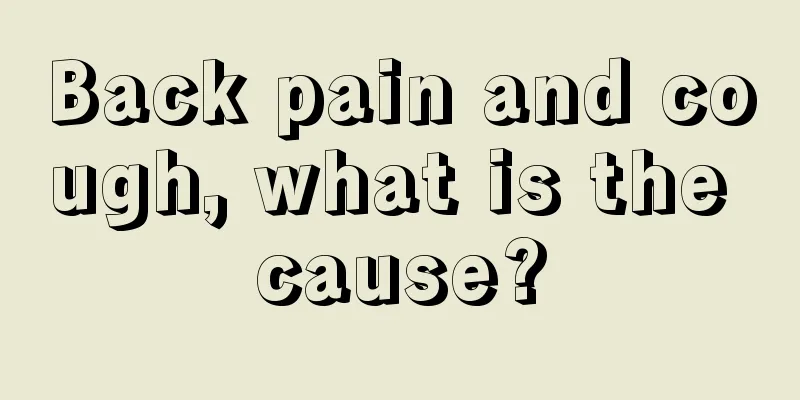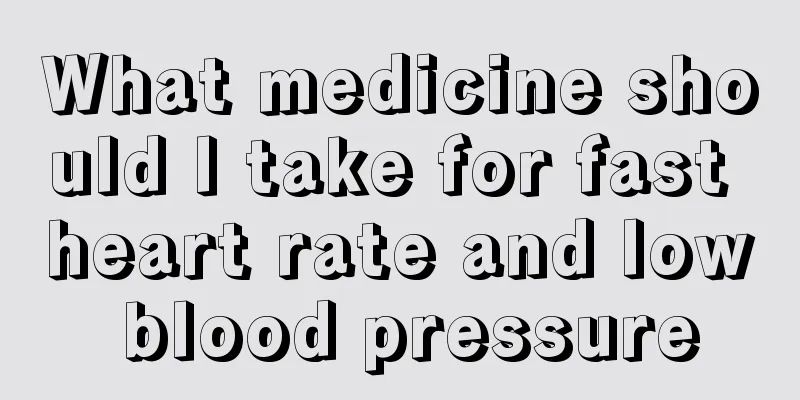Back pain and cough, what is the cause?

|
Back pain is a very common disease, and it is very likely to be accompanied by cough. Experts say that poor posture, unhealed trauma, infection, inflammation, lumbar intervertebral disc herniation, osteoporosis, etc. can all cause this disease and need to be treated correctly. 1. Bad posture: The body’s direct response to bad posture when sitting, standing, lying or exercising is muscle fatigue in the lower back. I often don't feel anything unusual when I wake up in the morning, but the longer I work, the more sore I feel. I can't find the pain point, but the range of the soreness is quite wide. When poor posture causes damage to the myofascia of the waist and buttocks, the pain in different parts is not the same; for example, the iliopsoas muscle is the hidden mirror of low back pain, the pain of the quadratus lumborum muscle always makes people mistakenly think that there is a problem with the kidneys, and the gluteus medius muscle not only makes the buttocks painful, but also makes it more painful when walking. 2. Unhealed trauma: Local muscle and ligament strain caused by improper application of force, which is not properly treated and gradually develops into chronic muscle strain, will cause the so-called "tender points". Therefore, as long as the back muscles are used, these tender points will be very painful and usually require ultrasound combined with heat and massage to treat. 3. Infection and inflammation: Stones in the kidneys and upper ureters often cause pain in the lower back. If kidney stones grow in the renal pelvis or renal pelvis outlet, partial or complete blockage will cause varying degrees of pain in the lower back. Kidney staghorn stones are often accompanied by severe symptoms such as high fever and bacteremia. Intraspinal tuberculosis or bacterial infection, ankylosing or rheumatic spondylitis may cause back pain. The above-mentioned arthritis will prevent people from performing the same movement for a long time. They must rest frequently and avoid being motionless for too long. 4. Lumbar disc herniation: No matter how young you are, if you bend over to lift heavy objects, you may suffer from disc herniation, which will compress the sciatic nerve, causing acute back pain that extends to the legs and may even be so painful that you cannot walk. 5. Osteoporosis: Reduced bone density will cause the spine to gradually collapse, resulting in varying degrees of hunchback and height loss. In mild cases, people will feel back pain; in severe cases, people may fall slightly and suffer compression fractures of the spine. Riding a bicycle can effectively increase the bone density of the lumbar vertebrae. However, those whose osteoporosis worsens are mostly middle-aged and elderly people, who are also a high-risk group for degenerative arthritis of the spine and lower limbs. Excessive weight-bearing exercise may harm the limbs, and the intensity of exercise needs to be considered. In addition to getting calcium from diet, women should also absorb more sunlight to promote calcium absorption. Menopausal women must discuss estrogen supplementation with their doctors. |
<<: How long does it take to recover from double eyelid surgery? There are so many disadvantages
>>: How to treat low neutrophil percentage
Recommend
Can pregnant women eat seaweed?
Nori, an symbiotic algae in the ocean, can be use...
Symptoms of colon cancer
A large amount of literature shows that the peak ...
The main source of infection of Japanese encephalitis
Japanese encephalitis is a disease that is an inf...
What are some good ways to quit smoking
In daily life, we often see people smoking in pub...
How many calories does winter melon have
Dishes made from winter melon are delicious delic...
What to do if skin is infected and ulcerated
Skin infection and ulceration are caused by long-...
What are the reasons for the sudden appearance of dark spots on the face?
Dark spots on the face make the whole face look b...
I feel flustered, anxious, and uneasy.
What should I do if I often feel anxious? If you ...
Tips on how to get rid of acne and acne marks
Acne on the face is generally caused by getting t...
How to use a purple clay teapot for the first time?
As we all know, there are many things with a long...
What is the correct way to measure blood pressure
The human body's blood pressure fluctuates co...
Is head MRI harmful to the human body?
With the development of science and technology, m...
What are the conditions for not having surgery for thyroid cancer
The conditions for not undergoing surgery for thy...
What are the chemotherapy drugs for kidney cancer
Chemotherapy is the use of drugs to treat cancer....
What is emotion
I believe that everyone has often heard the term ...









